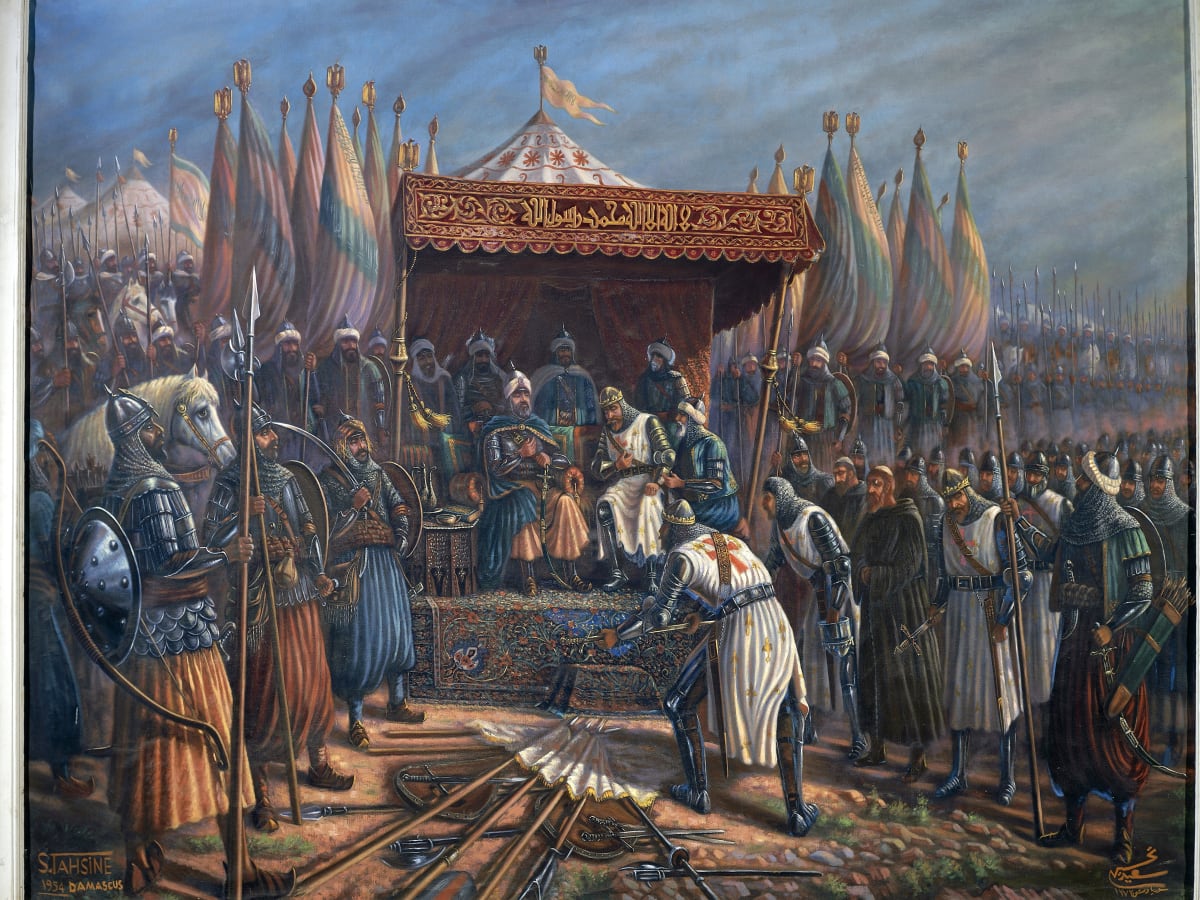Pope Urban II (r. 1088-1099) carried on the tradition of Gregory VII. To his Council of Piacenza in 1095 came envoys from Alexius, who asked for military help against the Turks. The Byzantine envoys also seem to have stressed the sufferings of the Christians in the East. Eight months later, at the Council of Clermont, Urban preached to a throng of the faithful.
He painted in dark colors the hardships that now faced pilgrims to Jerusalem. He summoned his listeners to form themselves, rich and poor alike, into an army, which God would assist. If a man were killed doing this work of God, he would automatically be absolved of his sins and assured of salvation. The audience greeted this moving oration with cries of “God wills it.” Throngs of volunteers took a solemn oath, and sewed crosses of cloth onto their garments. The First Crusade had been launched.
Peter the Hermit, an unkempt, barefoot old man who lived on fish and wine and was a moving orator, proved the most effective preacher of the Crusade. Through France and Germany he recruited an undisciplined mob, many of them serfs living wretched lives, suffering near-starvation as a result of crop failure. Often they believed that Peter was leading them straight to heaven, the New Jerusalem, which they confused with the Jerusalem on earth.
In two installments, they poured up the Rhine, across Hungary, where four thousand Hungarians were killed in a riot over the sale of a pair of shoes, and into Byzantine territory at Belgrade. The Byzantines, who had hoped for the loan of a few hundred well-trained knights, were appalled at the enormous armies about to descend on them.
They proceeded to take all precautions against trouble. Despite their best efforts, the undisciplined crusaders burned houses and stole everything that was not chained down. Once in Constantinople, Alexius Comnenus shipped them across the Straits as quickly as possible. In Asia Minor they quarreled among themselves, murdered the Christian inhabitants, scored no success against the Turks, and were eventually massacred.
Meanwhile, a considerable number of great lords had been recruited, including a brother of the king of France, the duke of Normandy, and the count of Flanders. The most celebrated, however, were Godfrey of Bouillon (duke of Lower Lorraine), and his brother Baldwin, Count Raymond of Toulouse, Count Stephen of Blois, and Bohemond, a Norman prince from southern Italy. Better-equipped and better-disciplined, the armies led by these lords began to converge on Constantinople.
The emperor Alexius was in a very difficult position. He was ready to have the Western commanders carve out principalities for themselves from Turkish-occupied territory. But he wanted to assure himself that Byzantine lands would be returned to his control and that whatever new states might be created would be dominated by him.
He knew of the Western custom of vassalage and the importance attached to an oath taken to an overlord. So he decided to require each great Western lord to take an oath of liege homage to him on arrival. To obtain these oaths, Alexius had to resort to bribery with splendid gifts and to all sorts of pressure, including in some cases the withholding of food from the unruly crusading armies.
The armies were all ferried across the Straits. There was no supreme command, but the armies acted as a unit, following the orders of the leaders assembled in council. In June of 1097 at Nicaea, the Seljuk capital, the Turks surrendered at the last minute to Byzantine forces rather than suffer an assault from the crusader armies. This the crusaders bitterly resented, since they had been looking forward to plundering the town.
Crossing Asia Minor, they defeated the Turks in a battle at Dorylaeum, captured the Seljuk sultan’s treasure, and opened the road to further advance. Godfrey’s brother Baldwin, leaving the main army, marched to Edessa. Here, after negotiations with the local Armenian rulers, he became count of Edessa—lord of the first crusader state to be established (1098).

